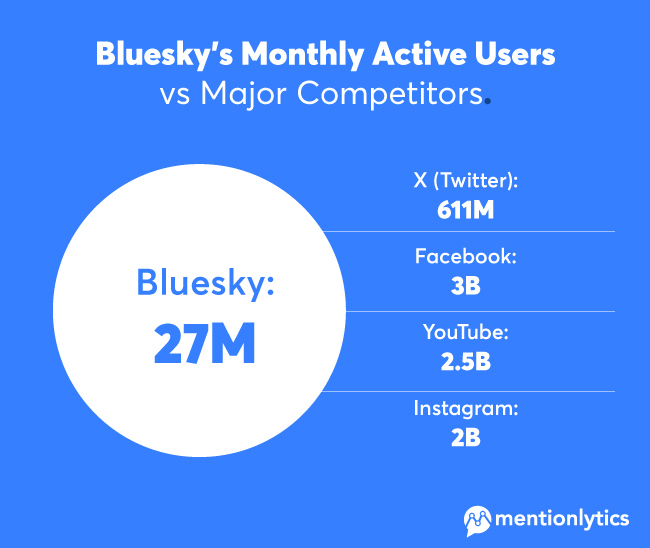Bluesky and Facebook represent fundamentally different approaches to social networking, primarily distinguished by their underlying technology, governance, and philosophy.
Core Architectural Difference
Bluesky operates on the AT Protocol, a decentralized, federated network. Users own their data and can potentially move their accounts or data between different services ("instances") built on the protocol, similar to email.
Facebook is a centralized, proprietary platform. All user data resides on and is controlled by Meta's servers. Users are locked into Meta's ecosystem and rules.

Key Differences & Implications
- Data Ownership & Portability: Bluesky aims for user control and data portability. Facebook retains full ownership and control.
- Governance & Moderation: Bluesky offers composable moderation (users/followed lists/specific services define filters). Facebook relies solely on centralized corporate moderation.
- Algorithmic Choice: Bluesky allows users/developers to choose or create custom algorithms ("Algos"). Facebook controls the algorithm centrally (black-box feed).
- Focus: Bluesky emphasizes public text-based conversations (akin to early Twitter). Facebook offers a comprehensive feature suite (Groups, Marketplace, Events, Video, Messenger).
- Business Model: Bluesky's long-term model is less clear but targets being self-sustaining (potentially paid services like hosting). Facebook relies heavily on targeted advertising based on user data.
Pros & Cons for Users
Bluesky
- Pros: Greater potential user control & data ownership; Escape from centralized algorithm manipulation; Customizable moderation; Open development fosters innovation; Ad-free (currently).
- Cons: Smaller user base (still largely invite-only/growth phase); Fewer features (e.g., no video uploads, DMs, Stories); Complex concepts (decentralization, feeds, moderation settings); Uncertain long-term sustainability; Moderation relies heavily on user tools.
- Pros: Massive user base/network effects; Feature-rich platform (Messenger, Groups, Events, Marketplace); Intuitive, familiar interface; Robust ad-supported free access; Broad content discovery potential (though algorithm-driven).
- Cons: Minimal user control over data & algorithms; Deep user profiling for targeted ads; Centralized control & opaque moderation decisions; Privacy concerns; Platform lock-in; Vulnerability to widespread policy/algorithm changes.
In summary: Bluesky offers a privacy-first, user-centric, open vision prioritizing control and innovation over convenience and scale. Facebook provides a mature, feature-rich, unified experience at the cost of user autonomy and privacy due to its reliance on centralized control and surveillance advertising. The choice fundamentally depends on whether the user values control/openness or breadth/ease of use.












